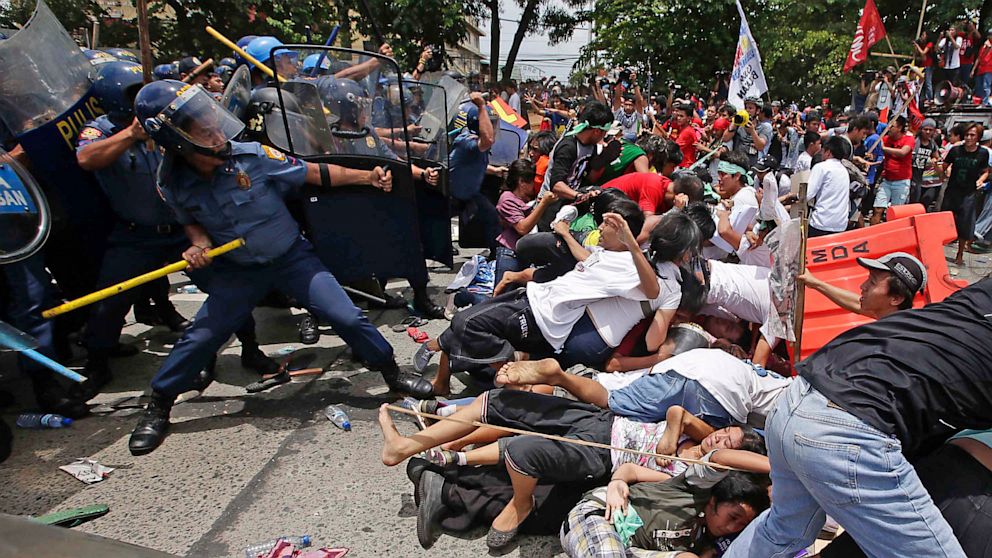Scientific Feud: Does Global Warming Make Us More Violent?
Others, though, have sharply criticized the study.

Aug. 11, 2013— -- A group of scientists recently released a paper claiming that global warming makes violent conflict more likely. Others, though, have sharply criticized the study, leading to a widening scientific tiff. In related news, it has been a hot summer.
There's a widely held assumption that climate change will have horrific consequences, not only for the environment but also for its inhabitants. As resources become scarcer, the logic goes, the number of violent conflicts across the globe will increase. At first glance, the claim would seem to make sense. And yet for the last 20 years, scientists have been debating the question as to whether global warming necessarily makes conflict more likely. A flood of studies on the subject has failed to provide much clarity. Some researchers see climate change as a danger to peace, some don't. Still others believe that global warming could even reduce the risk of war.
Given the lack of consensus, a recent study that appeared in the respected journal Science was all the more astounding. A team led by Solomon Hsiang from the University of California, Berkeley analyzed 60 studies from a variety of disciplines and came to the conclusion that global warming clearly increases the danger of violent conflict. Should average temperatures increase by 2 to 4 degrees Celsius (4 to 7 degrees Fahrenheit) by 2050 as forecast, the study claimed, armed conflict could increase in some regions by as much as 50 percent.
All regions of the world would be affected, the researchers wrote. Sudden increases of domestic violence in India and Australia, more corporeal violence and murders in the US and Tanzania, ethnic riots in Europe and South Asia, conflicts over land in Brazil, police violence in Holland and even historical events such as the fall of the Mayan Empire: all such examples were used to support their theory. The study, they claimed, was the first such large-scale report on the issue. Never before had so much data been analyzed.
Killer Heat Waves
"Hotter Weather Actually Makes Us Want to Kill Each Other," was the headline chosen by the Atlantic. "Rise in violence 'linked to climate change,' wrote the BBC. "Global Warming Is Greatly Increasing Crime and Other Conflict," it read in the Huffington Post. Several German outlets have run variations on the "Climate of Violence" theme with Focus Online leading the way. Their headline? "Agro-Heat Turns People into Killers."
But there is a problem. Other experts were unusually forceful in criticizing the study, accusing Hsiang and his colleagues of using questionable statistical methods, of arriving at dubious conclusions and even of a tendentious selection of data. Hsiang et al. have since reacted with an exhaustive reply taking their critics to task.
One of those critics is Jürgen Scheffran, a professor at the University of Hamburg who specializes in the security risks posed by climate change. In 2012, he and others also completed a study on the topic, with an abridged version likewise appearing in Science. The team analyzed 27 studies and found that "16 of them … showed that global warming increased the likelihood of violence," Scheffran says. But 11 showed that whereas climate change could increase violence in some cases, it could lessen the chances of violence in others -- or have no provable effect whatsoever. "Hsiang and his team didn't consider eight of these 11 studies," Scheffran says. "When one shrinks one's database like that, it results in a certain image."
'Worrisome'